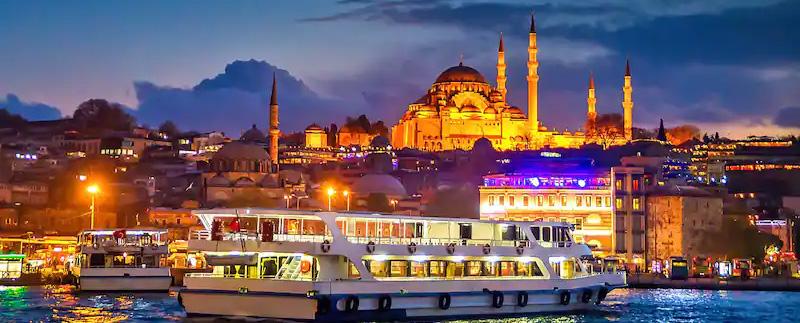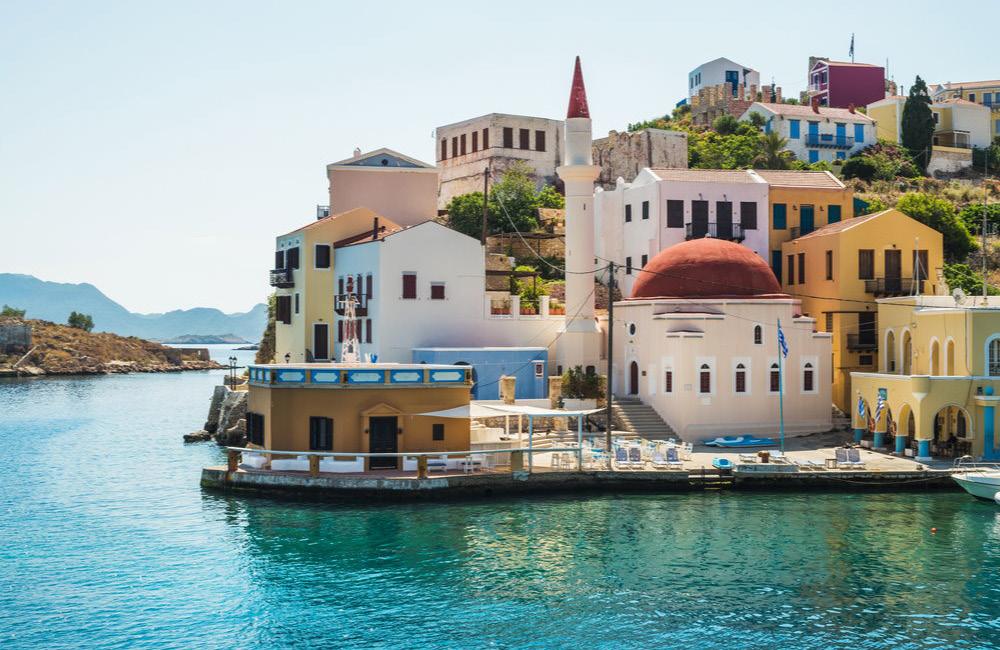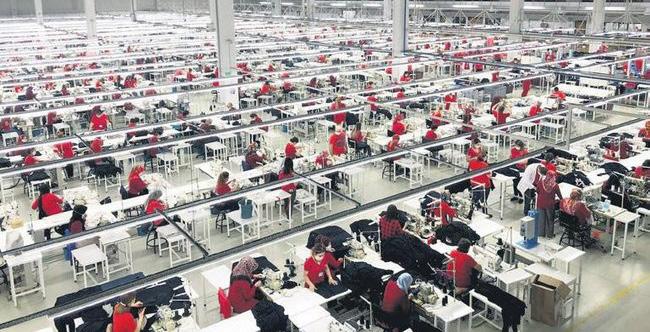COUNTRY GUIDE: TÜRKIYE




The historical crossroads’ culture and location create a fitting environment for modern apparel manufacturing. Occupying an ideal location between Europe and Asia, Türkiye’s modern manufacturing facilities provide a hub for apparel manufacturing. With a growing industry and an experienced workforce, opportunities for manufacturing large and small — with great pricing — abound.
Türkiye has always occupied a mysterious place in the Western imagination. With Istanbul, its capital city, enthroned astride the Bosphorus River, the nation spreads East across the Anatolian Peninsula, providing a gateway between Europe and Asia. With a long, storied history, the modern Republic of Türkiye is known as much for its ancient landmarks — the Blue Mosque, Hagia Sophia, and Topkapı Palace — as for its natural splendor — the Riviera-like Bodrum, and the chiseled landscape of Cappadocia. A crossroads for culture, the country’s proud population provides a mix of modern, entrepreneurial thinking with a deep traditional mindset.
According to ITKIB (General Secretariat of Istanbul Textile and ApparelExporter Associations) throughout history, Türkiye has greatly influenced the textile apparel industry. It gained a significant reputation in fabric production and handcrafts, particularly during the Ottoman Empire period, when Turkish textile and weaving arts reached a high level of excellence. Today Türkiye is a member of NATO and has applied to join the European Union. It is also a presidential representative democracy and constitutional republic.
• 19th largest world economy, with services, industry, and agriculture providing key opportunities.
• Population of more than 85.25 million people.
• Türkiye has four major container ports, Haydarpasa, Ambarlı, Izmir, and Mersin.
• 8,333-kilometer (5,177 miles) coastline stretches along the Black Sea to the north (sharing borders with Bulgaria, Romania, Ukraine, Russia, and Georgia), the Sea of Marmara (just south of Istanbul), and the Aegean Sea and the Mediterranean.
• Two major cargo airports, Ataturk in Istanbul, and Esenboga in Ankara.
In a nation only slightly larger than the state of Texas, Türkiye’s is rich in natural resources, especially minerals like coal, iron ore, copper, and much more. From an agricultural and textile standpoint, the country is known for its cotton, grown in the Aegean and Mediterranean regions. The main pillars of the Turkish Apparel Industry are sustainability, agility, better understanding of fashion and an ecofriendly approach in production.
• A major exporter of cotton yarn and is also known for wool, mohair, and linen yarns.
• Because the Turkish apparel industry is so large, the nation doesn’t produce enough cotton to meet demand, so it also imports cotton from America, Greece and Egypt (ITKIB).

• Has the eighth-largest capacity for man-made fibers in the world.
• With mills spread across the country, most large mills are recognized for being vertically integrated, able to produce fibers, yarns, and through the completed product, greatly decreasing carbon footprint.
According to the Turkish Statistical Institute and the Ministry of Trade, in May 2023; exports were 21,659 million USD, and imports were 34,186 million USD. Its main trading partners in textiles and apparel are China, the United States, and Russia.
• Türkiye and the European Union (EU) have a customs union, under which non-agricultural imports from EU member countries, i.e., the European Free Trade Association, enter Türkiye duty-free. Otherwise, the nation exacts duties on 4,815 products, including textiles, apparel, footwear, and travel goods of between 1.9% to 50%.
• While it does not share a Free Trade Agreement with the United States, the U.S. exported 12.0 billion USD in goods to Türkiye in 2021, importing $15.9 billion in goods to the nation that same year.

Türkiye is the fifth largest textile and garment manufacturer (after China, EU, and India, and just ahead of the United States), with the fashion industry making up 6.7% of the country’s GDP and employing 20% of its workforce, around 79 billion USD.
• Türkiye’s apparel sector exported 31.2 billion USD in 2022 (including textiles).
• Apparel and textiles account for 17% of total industrial production.
• Around 1.2 million people are employed in Türkiye’s textile, apparel, and footwear manufacturing sectors

450,000 in textile manufacturing
500,000 in apparel
65,000 in footwear and leather goods.
• In 2020, the country ranked as the fourth largest exporter of textiles worldwide, accounting for almost 3.3% of all exports.
The industry is exhibiting signs of growth, with the value of both textiles and clothing exported having more than doubled since 2000.
• A large proportion of the textile and apparel goods leaving Türkiye arrive in locations inside Europe, with Germany, the United Kingdom, and Spain ranking as top destinations. In 2020, these three countries together accounted for over 8.5 billion USD in exports.
Reports show that Türkiye has had as many as 59,000 companies in textile, footwear, and apparel manufacturing, nearly all of them small or mediumsized entities. Known for high quality and attention to detail, Turkish manufacturers are known to invest in the latest technology and production methods, all while managing to offer competitive pricing (especially important to startup brands). With rapid production times and a healthy infrastructure, speed-to-market is Türkiye’s specialty.

• In 2021, the most exported product groups were yarn, woven fabrics, and technical textiles.
• One of the leading sectors in the industry is knitted fabrics.
• Türkiye is the world’s fourth largest denim exporter (for both fabrics and garments).
Quality and design make Türkiye a leader in the denim industry, and its share of the ready-to-wear market continues to grow. Numerous industries have grown up around the production of denim, including the textile industry, garment manufacturing, laundry, and accessory makers.
• In the first quarter of 2021, over 25% of Türkiye’s clothing exports were made of denim.
• In 2020, top Turkish denim importing countries were:
Germany (US$ 248.6 million)
Spain (US$ 236.3 million)
Netherlands (US$ 217.4 million)
• In total, in the first quarter of 2021, Türkiye exported denim garments with a total value of US$ 431.4 million, an increase of 5.4% over the same period in 2020.
• In Türkiye, Istanbul is the design, marketing, and trading center, and Anatolia is the production center with different cities designed on apparel production with big factories and a well-trained workforce. Türkiye is not only a sourcing country, it also has many brands of its own, which operate thousands of stores and shops all around the world, and especially in Europe. (ITKIB)

Türkiye has also made a major commitment to sustainability with its adoption of “Agenda 2030,” a series of National Development Plans coordinated with the United Nations. Clothing manufacturers themselves have committed to sustainable practices, including adopting practices in transparency, traceability, and environmentally friendly practices, fully recognizing that modern consumers demand eco-friendly apparel.
Türkiye is just one of many amazing countries represented at SOURCING at MAGIC Las Vegas this season. Come and see our whole world of sourcing and buying solutions, as well as informative seminars, and lively networking events.
The Turkish apparel industry doesn’t only invest in technology and production, but in human resources, too. Special support — both financial and non-financial — of the Apparel Exporters’ Association in vocational education and training enhances the industry’s human-power capacity by establishing and sponsoring different educational institutions. Vocational high schools, with departments in clothing technologies and fashion, are spread across Türkiye’s seven regions. There are currently 344 schools, of which five are supported by apparel exporters and included in the protocol schools of the İstanbul Apparel Exporters Association. After high school, the Istanbul Fashion Academy (IMA) is one of Türkiye’s most competent fashion schools, conducting educational activities with an innovative and modern approach in all areas related to fashion.
The KOZA Young Fashion Designers
Competition is the most important platform that brings together young talents who aspire to pursue a career in fashion design. Throughout its 31year history, it has created Türkiye’s most influential fashion archive. Özgür Masur, Hakan Yıldırım, Arzu Kaprol are all Turkish fashion designers who have emerged from this competition.
Reference includes: ITKIB, Statista, Fashion United, and Trade.gov. All photos courtesy of ITKIB.
SOURCING at MAGIC is a domestic and international gathering of manufacturers, suppliers and service providers from apparel and footwear manufacturing, to textiles, materials, components, supply chain, and technology solutions—both in-person and online.
